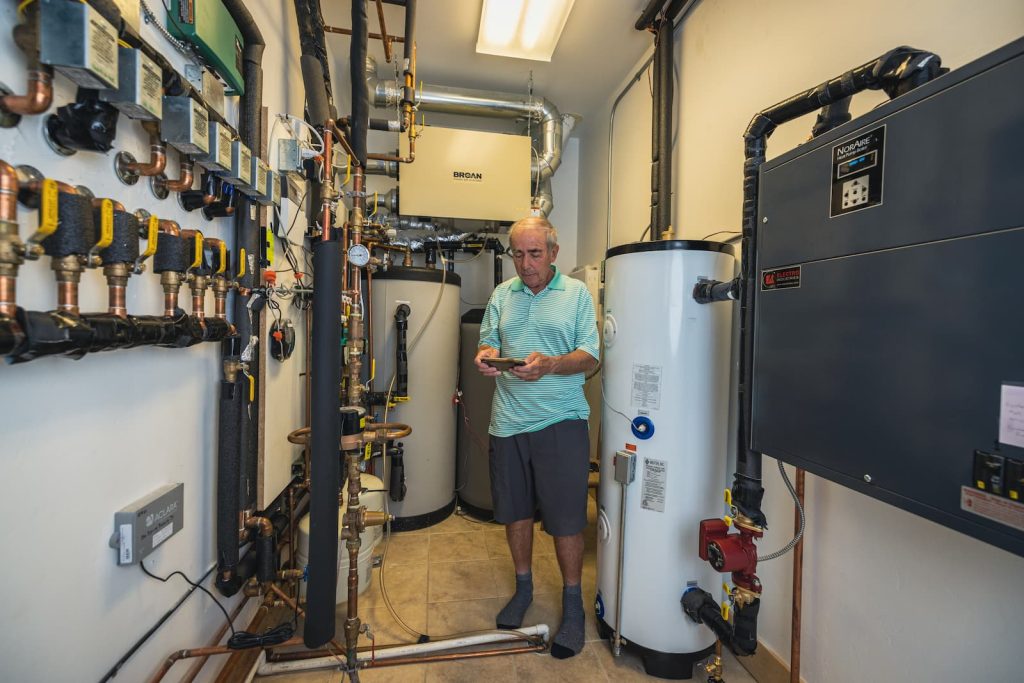
Dear Eartha,
The gas efficiency of my car matters a lot to me. It’s easy to understand miles per gallon. Is there a simple way to measure the efficiency of my house, too?
When it comes to making purchases, we all want to ensure that we’re getting the best value for our money. That’s why the miles per gallon rating of a car is so useful. We want to know we’re getting a car that won’t cost us a fortune in gas. I don’t know about you, but I always keep an eye on the miles per gallon I’m getting in my current vehicle, too — not just for kicks, but also because it’s a great indicator of how the car is running.
But how many of us pay such close attention to our homes? For many, a mortgage or monthly rent is by far the single biggest piece of our financial pies. And according to the Residential Energy Consumption Survey conducted by the US Energy Information Administration in 2020, “27% of households in the U.S. reported difficulty paying energy bills or reported that they had kept their home at an unsafe temperature because of energy cost concerns.” We may have a general idea of what appliances and systems in our home use the most energy, but we should pay closer attention to the ‘miles per gallon’ efficiency of our homes.
The miles per gallon of Your Home
One of the best ways to figure out how well your home performs per unit of energy – that’s just a fancy way of saying miles per gallon – is to get a home energy assessment from High Country Conservation Center (HC3). A comprehensive analysis of how your home uses energy, an assessment inspects your home’s insulation, air leakage, lighting, appliances, and HVAC system, and includes some diagnostic testing, too. The focus is on identifying the most significant sources of energy waste in order to recommend top-priority improvements. Fortunately, unlike your car, there’s actually a ton you can do to improve your home’s miles per gallon. And of course, there are also a lot of ways to simply ‘drive’ more efficiently (think: Turning heat back and wearing a sweater, turning lights off when you’re not using them, etc).

The HERS Index
Getting a home energy assessment is an incredible, budget-friendly way for homeowners to learn about the factors that go into their home’s efficiency and ways to improve it, but it still doesn’t quite give us that standardized score like we see with the miles per gallon of our cars. That’s where the Home Energy Rating System (HERS) Index comes in.
The HERS Index looks at many of the same factors as the home energy audit but also involves detailed inspections and energy modeling to determine a score between 0 and 150. A score of 100 represents the energy use of a home built to 2006 energy codes, while a score of 0 represents a home that uses renewable energy to produce as much energy as it consumes. A high-performing house with a low HERS score will be more comfortable, have a lower environmental impact, and dramatically reduce operating costs.
The HERS Index can be particularly useful when buying a new home. Just as you might look at the miles per gallon rating of a car when deciding which one to buy, you can look at the HERS Index of a home to get an idea of its energy efficiency and make an informed decision.
So why don’t we hear more about the HERS Index? The truth is, many people don’t even know it exists. We’re bombarded with ads for cars boasting high miles per gallon ratings, but we don’t see the same emphasis on energy efficiency for our homes. But we should! Improving the energy efficiency of our homes can have a significant impact on both our wallets and the environment.
Spend Less, Save More
Speaking of wallets, improving the efficiency of your home doesn’t have to break the bank. Incentives make these projects more cost effective so you can start saving sooner. Local rebates, utility rebates, and federal tax credits are available for many energy efficiency upgrades. And in fact, local rebates from HC3 are up to $4,000 and can cover up to 100% of the cost of your project! I don’t know any car dealers who can match that deal.
